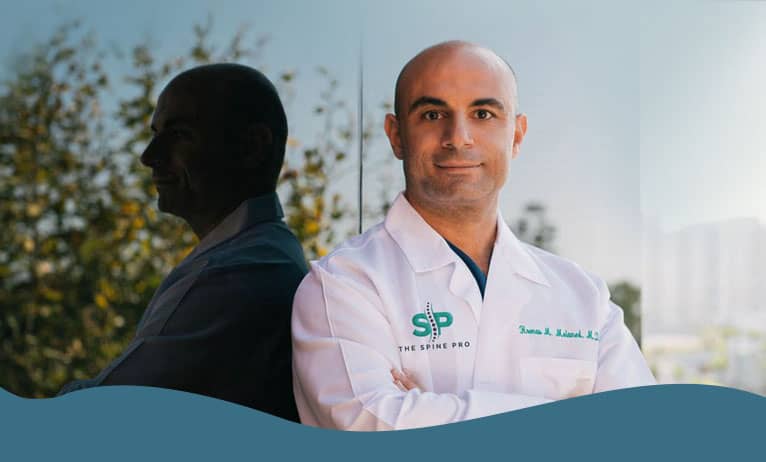Opioids: Why We Don’t Use Them
Opioids are a type of drug derived from the opium poppy plant that is used to relieve pain. Not only do opioids alleviate pain, but they also create a euphoric or “high” sensation, which has been found to be highly addictive. The most common forms of opioids are:
- Prescription opioids: OxyContin and Vicodin
- Fentanyl: 50 to 100 times more potent than morphine
- Heroin: illegal drug
Opioids work by attaching to receptors found within the brain, spinal cord, and other bodily tissues, which block pain signals from spreading throughout the body.
Why The Spine Pro Does Not Use Opioids
The Spine Pro does not prescribe opioids because they are highly addictive and have led to an opioid epidemic in America. One reason why they are so addictive and dangerous is that the longer you use opioids, the more your tolerance increases. A higher tolerance means you need more and more of the drug to get the same relief. When you take higher doses of opioids, it increases the chances that you may overdose.
The Opioid Epidemic
The opioid epidemic emerged due to some of the healthcare community’s lack of concern about the addictive nature of these drugs. In the late 1990s, healthcare providers began to prescribe opioids at accelerated rates due to reassurances from pharmaceutical companies that opioid pain relievers were not addictive. However, it soon became apparent that this was not accurate as opioid misuse and overdoses became widespread across the country.
Now, over 10 million people misuse prescription opioids every year, with over 70,000 people dying each year from overdoses. In 2020 alone, over 93,000 people died of a drug overdose.
Alternative Treatments for Pain
The prevalence of opioid misuse is why Dr. Hooman Melamed of The Spine Pro specializes in minimally invasive spinal procedures. With less invasive surgeries, there is a shorter recovery time and less pain associated post-operative, meaning patients do not require opioids to manage their pain.
Instead of using opioids, Dr, Melamed uses the following pain-relieving solutions:
Nerve-Blocking Anesthesia
Anesthetics such as lidocaine and bupivacaine can be injected directly into the surgery site to numb the area and serve as pain relief from anywhere to a few hours to a few days after the procedure. There are also long-action numbing options that release the medication over a prolonged period of time, which can eliminate the need for opioids later in the healing process.
Take Over-the-Counter Pain Relievers
Non-opioid pain medications include products such as Advil, Tylenol, Aleve, and Ibuprofen. These pain relievers contain active ingredients such as aspirin, acetaminophen, or a non-steroidal anti-inflammatory, and are usually available over the counter. These medications are considered safer than opioids, though heavier doses may require a doctor’s prescription.
TENS Machines
A transcutaneous electrical nerve stimulation, known as a TENS unit is a battery operated device that delivers small electrical impulses to the body through electrodes. These electrodes are attached to the person’s skin through four adhesive pads, which transmit electrical impulses that flood the nervous system, reducing the body’s ability to send pain signals to the spinal cord and brain. At the same time, the impulses stimulate the body to produce endorphins, which are natural chemicals that boost happiness and alleviate pain
Along with opting for minimally invasive surgical procedures and opioid alternatives when possible, there are other ways to minimize your risk for chronic pain.
Stay Active
Swimming, running, cycling, or practicing yoga are all ways to alleviate joint pain or lower back pain. Your body is made to move, and staying active is one of the best ways to keep your body healthy.
Try Physical Therapy
Physical therapy is a common treatment for people who are suffering from injuries and those hoping to recover from surgery. Physical therapists can use interventions such as exercises, massages, and hands-on techniques to help improve the patient’s mobility and relieve pain.
Contact The Spine Pro
The Spine Pro is dedicated to helping patients find non-surgical ways to manage their back pain, so they aren’t put at risk of becoming addicted to opioids. Instead, we use the latest pain research and technology to create an individualized treatment plan for each patient. We strive to help you feel better through minimally invasive treatments and provide you with continued support even after your back injury has healed. Contact us today to learn more about what Dr. Melamed can do for your back pain.





